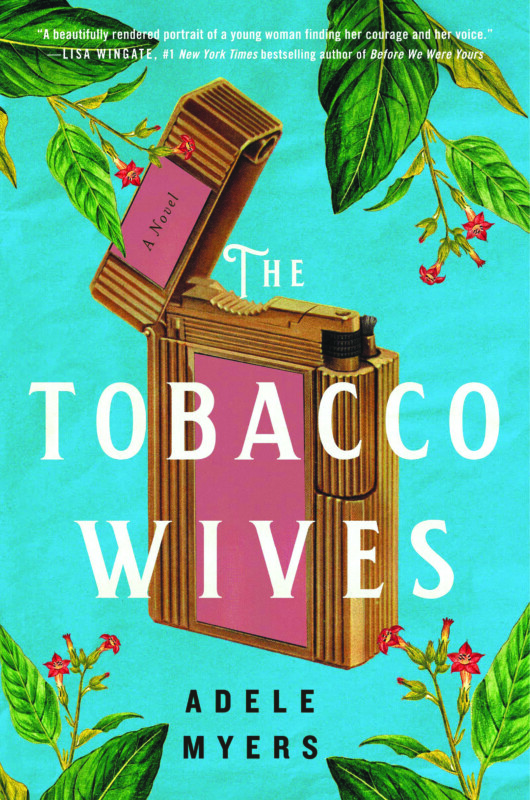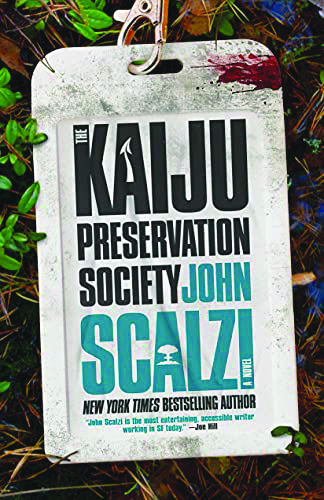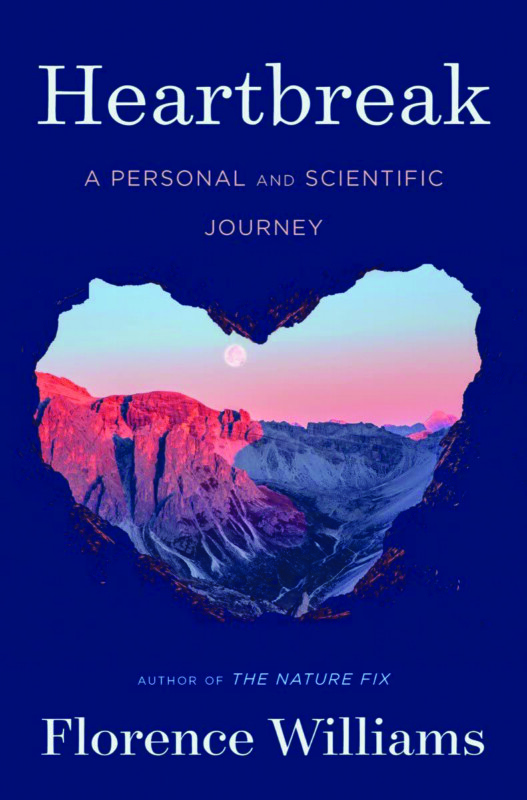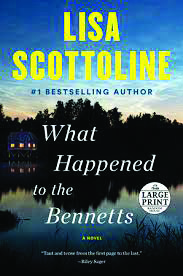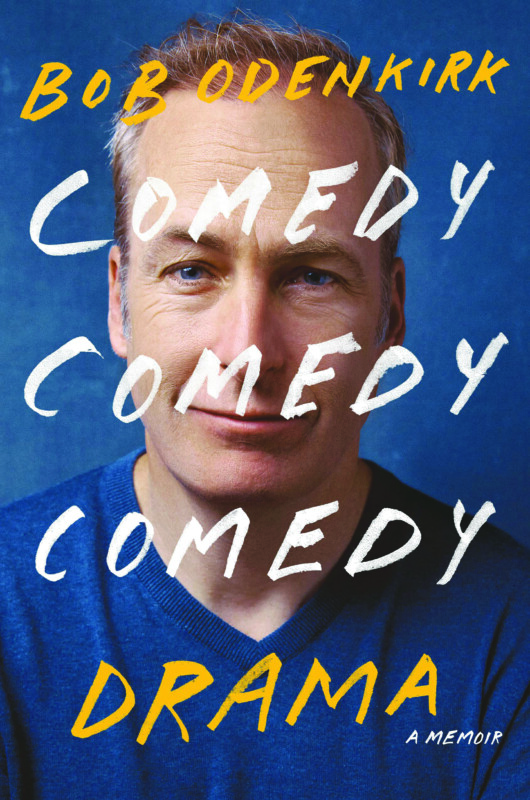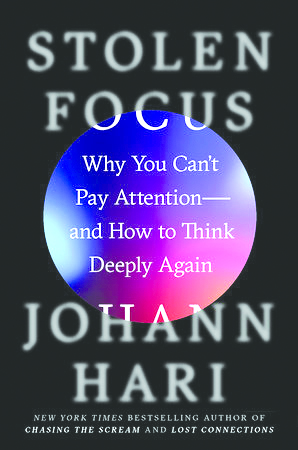Tobacco Wives, by Adele Myers (William Morrow, 344 pages)
Is there any good reason for a parochial New Englander to read trade fiction set in the South?
I’d argue yes, although the stories need to be extra compelling, such as Kathryn Stockett’s The Help, a book about Black maids in 1960s Mississippi that turned out to also be a decent movie. However, novels that draw much of their oxygen from a particular setting have to work harder to appeal to readers in distant regions.
Adele Myers tries to do that in Tobacco Wives, a story set in her home state of North Carolina, where the tobacco industry reigned in the years after World War II. It’s the story of a teen, Maddie Sykes, who goes to live in a town, Bright Leaf, where almost everyone, from field hands to executives, gets their money from tobacco and worships it like a god.
Tobacco was for more than cigarettes, Maddie was told. “Farmers and gardeners misted their plants with tobacco-soaked water to keep moles and gophers away.” Doctors prescribed it for asthma attacks, “and, of course, we all used tobacco poultices to calm a croupy cough or beat back a bad cold.”
Maddie is an aspiring seamstress like her aunt, with whom she goes to live after her widowed mother decides a teenager in the house is inhibiting her hunt for a new husband. Aunt Etta, who lives alone, makes good money by outfitting the glamorous wives of tobacco executives, and Maddie dives eagerly into that world.
But she soon learns (cue ominous music) that there is an unseen danger in the community, something that seems to be afflicting everyone in the tobacco community.
There is, alas, no opportunity to be shocked at what the villain is ultimately revealed to be, not with Maddie coming home from her first visit to a tobacco factory with grainy black specks all over her hands and body. “My calves, my ankles, even between my toes, were caked in a sticky brown dust that smelled of tobacco. We couldn’t have been in the factory more than fifteen minutes and I looked like I’d been there all day.”
If that wasn’t enough of a spoiler, while Maddie was at the factory, she noted a “tall, forbidding fence covered with yellow and orange signs: AUTHORIZED PERSONNEL ONLY. NO TRESPASSING. RESTRICTED AREA. VIOLATORS WILL BE PROSECUTED. I didn’t know there were so many ways to say ‘Keep Out.’”
Anyone who’s ever visited an Amazon warehouse has seen similar signs, but I digress. The point is, this is not so much foreshadowing as it is hitting us over the head with a shovel. Tobacco: Bad. Maddie: Good. We get it.
This sort of heavy-handed narration follows Maddie throughout the book, as she gets to know the people of Bright Leaf and starts to be concerned about seemingly unrelated health problems that dog them, from lost pregnancies to chronic asthma. At the same time, a local tobacco company is unveiling a new cigarette called MOMint, targeted for women. The mint-flavored cigarette is to be marketed as something that will calm nerves, ease indigestion and control appetite.
This sets up what little bit of tension there is in the novel: what Maddie should do about her increasing alarm about the effect of tobacco, given the impact it will have on the lives of the people she has grown to care about.
Tobacco Wives seems, in some way, a fictionalized knock-off of Kate Moore’s The Radium Girls, narrative nonfiction of 2017 that exposed the terrible impact of radium on young women who worked with it early in the 20th century, when the element was seen as a miracle substance, not a killer. Their story was also told in a movie and play, and I suppose Tobacco Wives is also headed to a big or small screen, although it feels stale compared to the radium story. To be fair, this is partly because the demonization of the tobacco industry is relatively new, owing to whistleblowers like Jeffrey Wigand (whose efforts were also made into a movie, The Insider, which starred Russell Crowe).
Tobacco Wives is a perfectly serviceable, middle-brow novel, and Myers adds a layer of interest by adding details about the war-related rationing that was going on at the time it was set. (Everyone knows about the tin foil, but I was interested to learn that fabric was also rationed.) But it suffers from a predictable villain made even more predictable by a debut novelist’s overenthusiastic foreshadowing. It might be a laborious read for the people of New England, particularly if they happen to smoke. The good people of North Carolina, however, will surely love the book, unless they happen to grow tobacco. C
Book Events
Author events
• WILD SYMPHONY READING AND CONCERT WITH DAN BROWN New Hampshire native and bestselling author of The Da Vinci Code Dan Brown will join the University of New Hampshire Wind Symphony to debut his classical work based on the musical album, released in conjunction with a corresponding children’s book of the same name. Sun., April 24, from 5 to 6:30 p.m. Johnson Theatre at University of New Hampshire (30 Academic Way, Durham). Free; purchase tickets in advance. Visit unh.universitytickets.com.
• BRANDON K. GAUTHIER Author presents Before Evil: Young Lenin, Hitler, Stalin, Mussolini, Mao, and Kim. Gibson’s Bookstore, 45 S. Main St., Concord. Wed., April 27, 6:30 p.m. Visit gibsonsbookstore.com or call 224-0562.
• SY MONTGOMERY Author presents The Hawk’s Way. Gibson’s Bookstore, 45 S. Main St., Concord. Tues., May 3, 6:30 p.m. Visit gibsonsbookstore.com or call 224-0562.
Book sales
• SPRING BOOK SALE Features thousands of hardbacks and paperbacks including fiction, nonfiction, mystery and a variety of children’s books, plus DVDs, CDs and audio books. Brookline Public Library, 4 Main St., Brookline. Sat., May 14, and Sun., May 15, from 10 a.m. to 2 p.m.
Poetry
• DOWN CELLAR POETRY SALON Poetry event series presented by the Poetry Society of New Hampshire. Monthly. First Sunday. Visit poetrysocietynh.wordpress.com.
Writers groups
• MERRIMACK VALLEY WRITERS’ GROUP All published and unpublished local writers who are interested in sharing their work with other writers and giving and receiving constructive feedback are invited to join. The group meets regularly; the next meeting is scheduled for Tues., April 5, from 5 to 7:15 p.m., and will be held virtually over WebEx Meetings. To reserve your spot, email pembrokenhtownlibrary@gmail.com.
Writer submissions
• UNDER THE MADNESS Magazine designed and managed by an editorial board of New Hampshire teens under the mentorship of New Hampshire State Poet Laureate Alexandria Peary. features creative writing by teens ages 13 to 19 from all over the world, including poetry and short fiction and creative nonfiction. Published monthly. Submissions must be written in or translated into English and must be previously unpublished. Visit underthemadnessmagazine.com for full submission guidelines.
Book Clubs
• BOOKERY Monthly. Third Thursday, 6 p.m. 844 Elm St., Manchester. Visit bookerymht.com/online-book-club or call 836-6600.
• GIBSON’S BOOKSTORE Online, via Zoom. Monthly. First Monday, 5:30 p.m. Bookstore based in Concord. Visit gibsonsbookstore.com/gibsons-book-club-2020-2021 or call 224-0562.
• TO SHARE BREWING CO. 720 Union St., Manchester. Monthly. Second Thursday, 6 p.m. RSVP required. Visit tosharebrewing.com or call 836-6947.
• GOFFSTOWN PUBLIC LIBRARY 2 High St., Goffstown. Monthly. Third Wednesday, 1:30 p.m. Call 497-2102, email elizabethw@goffstownlibrary.com or visit goffstownlibrary.com
• BELKNAP MILL Online. Monthly. Last Wednesday, 6 p.m. Based in Laconia. Email bookclub@belknapmill.org.
• NASHUA PUBLIC LIBRARY Online. Monthly. Second Friday, 3 p.m. Call 589-4611, email information@nashualibrary.org or visit nashualibrary.org.
Language
• FRENCH LANGUAGE AND LITERATURE CLASSES
Offered remotely by the Franco-American Centre. Six-week session with classes held Thursdays from 6:30 to 8:30 p.m. $225. Visit facnh.com/education or call 623-1093.

